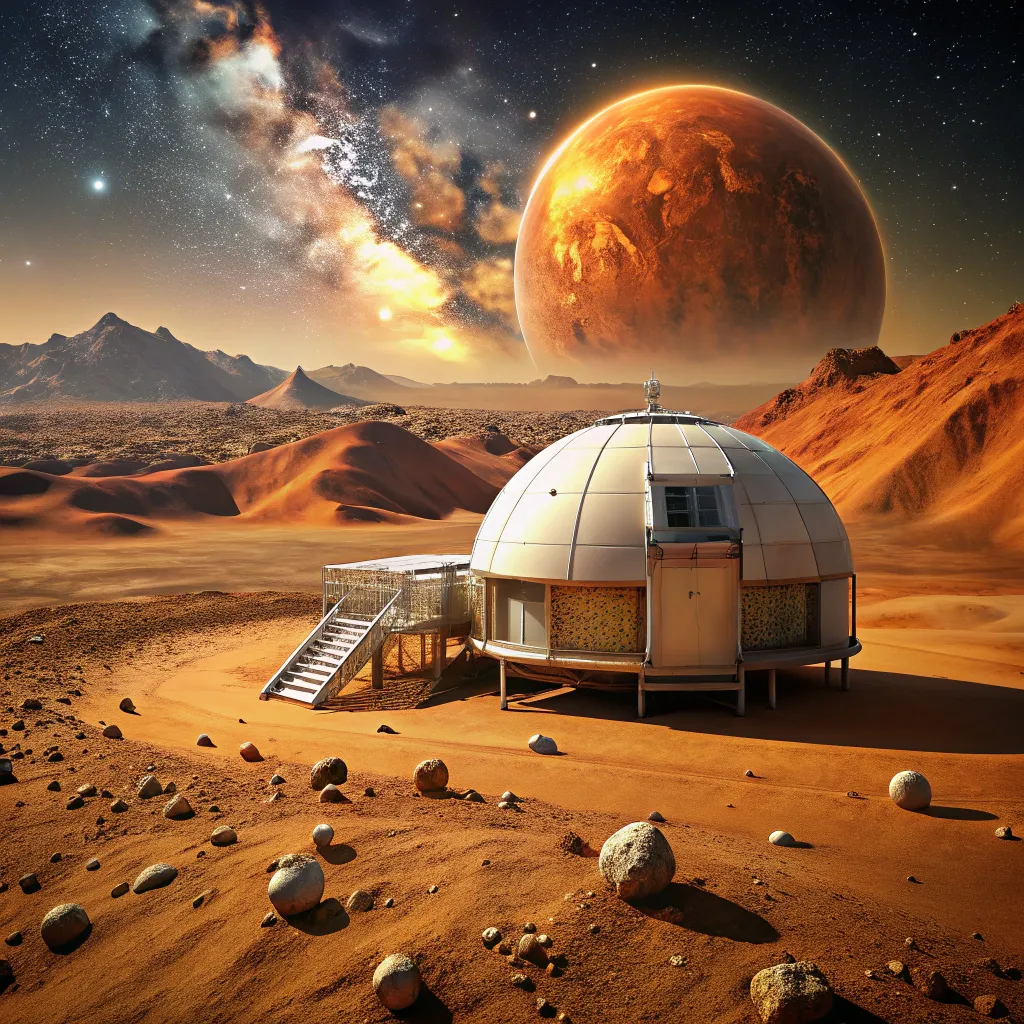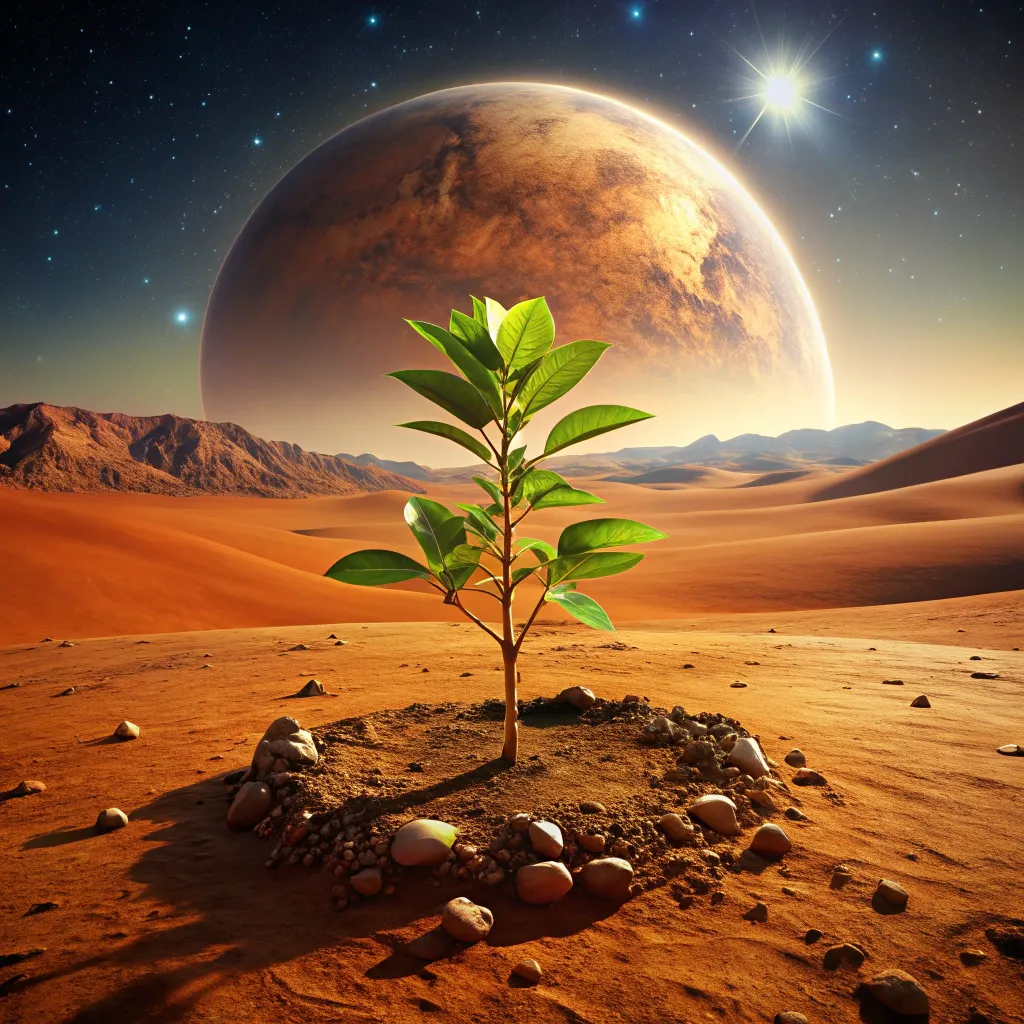Hello! I am EmperorBlue I am the one that will the answer the questions and explain it to you!
Questions
•What is mars?
•How long does it take to get to Mars?
•Can well live in mars?
•Can we plant to have a food?
Ready!
What is mars 🤔?

"Mars is the fourth planet from the Sun and is often referred to as the "Red Planet" due to its rusty-red appearance caused by iron oxide on its surface. It's a terrestrial planet, meaning it has a solid, rocky surface like Earth.
Here's some information I gathered from you!
•Size :Mars is about half the size of Earth.
•Atmosphere:Mars has a very thin atmosphere, primarily composed of carbon dioxide.
•Temperature: Mars is much colder than Earth, with average temperatures around -63°C (-81°F).
•Water:While Mars is known for its dry, dusty surface, evidence suggests that liquid water may have once flowed on its surface"
How long does it take to get to Mars🧐?
"The time it takes to travel to Mars depends on several factors, including:
•Launch window: There are specific times when Earth and Mars are aligned in their orbits, making the journey shorter and more fuel-efficient.
•Type of spacecraft: Different spacecraft have different speeds and capabilities.
•Mission objectives: Some missions prioritize speed, while others prioritize fuel efficiency.
•Current estimates suggest that a trip to Mars could take anywhere from 6 to 9 months.
•Important Note: While we have sent robotic missions to Mars, sending humans to the Red Planet is a complex and challenging endeavor. It requires significant technological advancements and careful planning.
•Can well live in mars😮?

"The idea of living in mars in exciting right? But there is some challenges to face here like:
•Atmosphere: Mars' atmosphere is extremely thin and composed mostly of carbon dioxide. This means there's no breathable air, and it offers little protection from harmful radiation.
•Temperature: Mars is incredibly cold, with average temperatures well below freezing. Humans would need specialized habitats to survive.
•Water: While evidence suggests water may have existed on Mars, it's not readily available in liquid form on the surface. We'd need to find ways to extract and purify water.
•Radiation: Mars lacks a strong magnetic field, leaving it vulnerable to solar radiation and cosmic rays. This poses a serious health risk to humans.
•Gravity: Mars has about one-third the gravity of Earth. This could have long-term effects on human health, such as bone density loss and muscle atrophy.
•Food and Resources: Growing food on Mars would be extremely difficult due to the harsh environment. We'd need to find ways to produce food or transport it from Earth.
"Current Research and Future Possibilities"
Despite these challenges, scientists and engineers are working on solutions to make Mars habitable. This includes:
•Developing advanced life support systems:These systems would provide breathable air, water, and temperature control.
•Designing radiation shielding: This would protect humans from harmful radiation.
•Exploring ways to terraform Mars:This involves modifying the planet's atmosphere and climate to make it more Earth-like.
"Conclusion"
Living on Mars is a long-term goal that requires significant technological advancements and careful planning. While it's not impossible, it's a complex and challenging endeavor.
Can we plant to have a food🤨?

While planting food on Mars is a fascinating idea, it's a very difficult task due to the harsh Martian environment. Here's a breakdown of the challenges and potential solutions:
Like what I said in the previous questions is almost the same problems but added more items.
•Atmosphere: Mars' atmosphere is extremely thin and lacks the necessary oxygen and nitrogen for most plants to grow.
•Soil: Martian soil is very different from Earth soil. It lacks essential nutrients and organic matter, and it contains high levels of perchlorates, which are toxic to plants.
•Water: While evidence suggests water may have existed on Mars, it's not readily available in liquid form on the surface. We'd need to find ways to extract and purify water.
•Radiation: Mars lacks a strong magnetic field, leaving it vulnerable to solar radiation and cosmic rays, which can damage plants.
•Temperature: Mars is incredibly cold, with average temperatures well below freezing. Plants would need to be grown in controlled environments.
"Potential Solutions"
•Controlled Environments: Growing plants in greenhouses or biodomes would provide a controlled environment with the necessary temperature, humidity, and light.
•Soil Modification: Scientists are exploring ways to modify Martian soil by adding nutrients, organic matter, and microorganisms to make it more suitable for plant growth.
•Genetic Engineering: Modifying plants to be more resistant to harsh conditions and radiation could be a solution.
•Hydroponics and Aeroponics: These techniques allow plants to grow without soil, using nutrient-rich water solutions.
"Current Research"
Scientists are conducting experiments on Earth to simulate Martian conditions and test the viability of growing plants in these environments.
"Conclusion"
While planting food on Mars is a significant challenge, it's not impossible. With ongoing research and technological advancements, we may one day be able to grow food on the Red Planet. However, it's important to remember that this is a long-term goal that requires significant effort and resources.
So what do you think in this topic?
You can put your opinion in the comment section
Thank you for reading this post!